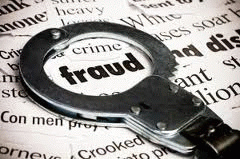|
Fraud Alert
Will a Fraud Alert prevent Identity theft? An alert is NOT a permanent solution to Identity Theft and it’s not always effective. An alert is when you ask to have a preliminary hold placed on your credit if you suspect you may be a victim of identity theft. The alert notifies the creditors that they should contact you directly should before issuing any credit in your name. This does help reduce potential attempts by identity thieves to use your credit to obtain new credit in your name. There are two types of credit alerts that you can ask the credit reporting agencies for: 1. Initial Alert 2. Extended Alert Initial Alert
An Initial alert stays in your file for 90 days. You will need to provide appropriate proof of your identity to the credit reporting agency. Extended Alert An extended alert stays in your file for 7 years. If you ask for an extended alert in addition to providing proof of identity as in the Initial Alert, you will be required to provide a copy of your Identity Theft Report. An identity theft report includes a copy of any report that you that you filed with your local law enforcement agency as well as any other information you were asked to provide other consumer reporting agencies. Additional information on reporting can be found at www.ftc.gov/idtheft. Removing Alerts To remove an alert you must request in writing to have the alert removed. This is done to protect your identity. Credit Reporting Agencies Equifax: 1-800-525-6285; www.equifax.com Experian: 1-888-397-3742; www.experian.com TransUnion: 1-800-680-7289; www.transunion.com 
Return to the top - Fraud Alert Back to How to Prevent Identity Theft Back to the Home Page
|
Free ID Theft Newsletter Subscription
Additional Identity Theft Articles
AARP - Earthquake Scam
AARP - Elderly Scam
AARP - Email Hoax
AARP - Fraud Protection
AARP - 2012 Fraud Scams
AARP - Social Media Twitter
AARP - Social Security Scams
Business - BBB Beware
Business - Is your Business at risk?
Business - ITC warns of Business Risk
Business - Small Business Prevent, Detect and Remedy
Business - Secretary of State Warns of Business Identity Theft






